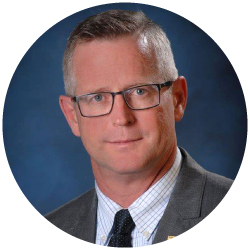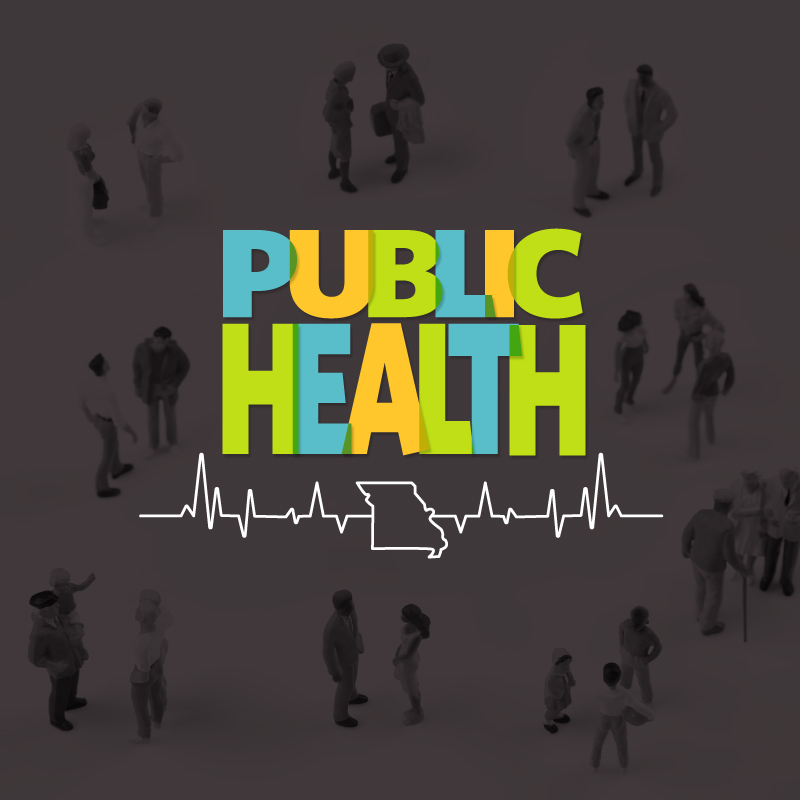
As a former public health department director, I like to think I know a thing or two about public health infrastructure and preparedness. I have spent the better part of the last 25 years working with an inspired group of public health professionals to create one of the best local public health departments in the Midwest. Even though my department was well funded and very involved in the community, we always struggled with relevancy. That is not an unusual position for a public health department to be in. Prior to the pandemic, most citizens might not have had many interactions with their local or state public health departments. That is likely a direct reflection of the ethos of the profession. The adage states that “a good day in public health is when nothing happens.” I have always viewed the field as a stealth profession. If we are doing things the right way, we are working silently behind the scenes and that invisible blanket of public health protection covers us all. If the health director is on the front page of the paper, things are not going that well.
But perhaps this is flawed logic. Maybe public health professionals have some culpability for what happened to our vocation. Perhaps working behind the scenes has not served us well. Just look at what has happened during the last decade. Funding for public health has eroded at both the state and national level. The field has struggled to adopt new technologies and harness the power of sophisticated analytics. We have been unable to invest heavily in leadership development. We have not done a great job of recruiting the next generation of public health leaders. We continue to struggle to get out of our silos, work across sectors, and make the important work we do relevant in our communities.
As a result, we have been left with a patchwork of haves and have nots, with the differentiating factor being local funding. In short, health equity issues abound in our local public health system. Where you live does matter. These failings have manifested themselves at an abysmal time. A global pandemic that has taken the lives of more than a half a million Americans is probably the worst way to discover fundamental problems within your critical public health infrastructure.
While it is easy to get fixated on the response to a 100-year global pandemic, especially one that entertained heated partisan political debate, the focus now needs to be placed on how we transform the existing public health infrastructure into a highly functioning public health system. The pandemic response in Missouri has not been all bad news. I have personally witnessed some of the worst of human behavior during the last year, but I’ve also been lifted up by some of the best. I have watched as public health professionals remained unbowed in their battle against a silent killer, even while taking withering criticism from the very citizens they are working to protect. I have watched as under-resourced local public health departments found a way to make contact tracing, quarantine, and vaccination efforts work with little or no additional resources from CARES Act dollars. In short, we have good people who are battle tested that can serve as a foundation for transformation.
Obviously, transformation is a complicated process and there are a ton of moving parts, so where do we start? Let us begin with some higher-level concepts and work from there in future blog posts:
Workforce: a recent publication, coauthored by our previous president and CEO Bob Hughes, points to the critical state of our public health workforce. The last decade has seen sharp declines in staffing levels and the workers that are in place do not always look like the communities that they serve. Investing in the development of the current workforce and developing a pipeline that will bring new, diverse, and talented workers to the profession is critical.
Data and analytics: many state and local public health data systems are built on antiquated platforms that perpetuate siloed approaches to data analysis. The profession has also struggled to integrate other data sets from the communities they serve. These data sets can help to flesh out the broader causal relationships driving poor public health outcomes. The inability to readily access sub-county level data that is timely, accurate and accessible is inexcusable in the digital age and needs to be remedied.
Foundational capabilities and accreditation: moving forward, we will need to find ways to measure the effectiveness of the current public health system, agree on a minimum set of standards that we can live with as a state, and focus on pathways to performance and quality improvement. Fortunately, there are models that exist that can help facilitate this process. The Foundational Public Health Services is a framework that defines a minimum set of fundamental capabilities and areas of public health expertise that should be available in every community. Research recently completed by #HealthierMO tells us that currently, less than half of our local public health departments can meet this minimum set of capabilities. This knowledge provides us with immediate pathways to begin rebuilding our public health infrastructure.
Additionally, some states have embraced public health accreditation to improve public health department performance. Currently, 21 of 114 local public health agencies in Missouri have been conferred accreditation by either the Missouri Institute for Community Health or the Public Health Accreditation Board. It is my personal belief that the public health accreditation process is the most transformative tool available to help public health departments evolve.
It is time to roll up our sleeves and begin the hard work necessary to bring much needed transformation to Missouri’s public health system. We know it will be challenging and that it will create discomfort for some. Even so, this is our moment, and we can use the pandemic to inform and drive this much-needed change. There is a Japanese proverb that states “the frog in the well knows nothing of the sea.” Let’s be aspirational. We have an opportunity to get out of our wells and explore the possible if we choose to.


